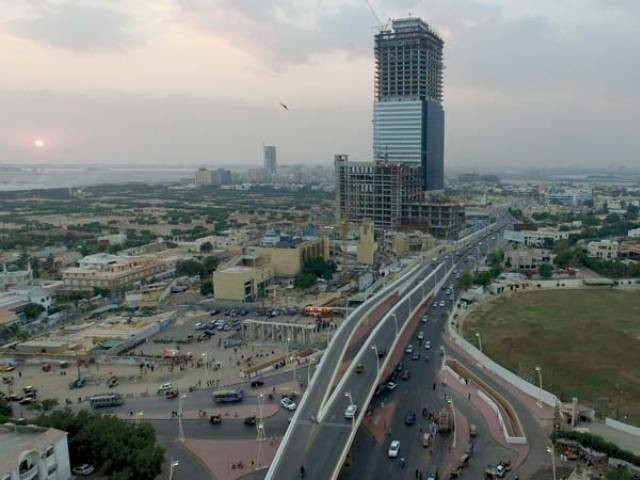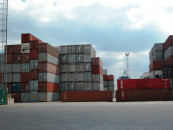Culture of amnesty scheme continues in Pakistan's real estate sector
Latest move is short-term one to appease real estate sector

PHOTO: AFP
The chanting slogan of the amnesty scheme is to whiten the black money with just 3% tax to be imposed on the difference between the DC rate and Federal Board of Revenue (FBR) valuation rate. Icing on the cake is that the FBR won’t ask about the sources of income.
According to conservative estimates of the FBR, Rs4 trillion is parked in the realty sector in Pakistan, implying that the tax machinery would lose billions in potential taxable revenue in the years to come. Despite all trappings, the outcome of this amnesty scheme would not be different from the previous ones.
NA clears tax amnesty for realty sector
The growing culture of amnesty scheme doesn’t bode well for a well-functioning economy which puts inequitable burden on honest taxpayers. In an economy where 0.7 million people have filed their tax returns to date the tax burden will fall disproportionately on them.
The honest taxpayers are being scrutinised through random audits and balloting. Even detailed audits of existing tax paying businesses are done frequently since the pool of tax payers hasn’t increased over the years. This increases the transaction cost of productive enterprises since they spend their time grappling with taxation matters.
There is a lack of trust among the government and members of society since the government introduces taxes without proper planning and or consultation with stakeholders.
In Pakistan, the imposition of these taxes is done in haste and without taking into account the unintended consequences. If you talk to real estate agents about a real estate transaction after the imposition of realty tax, they advised the clients to adopt a wait-and-see strategy and were confident that this tax would either be withdrawn or tamed. They became confident after looking at the outcome of the turnover tax imposed on the traders and the way traders bypassed that tax.
Unfortunately, there is an inherent fear among the people of being caught by voluntary tax payment in Pakistan. Interestingly, even existing taxpayers started advising the non-tax payers to stay away from the tax hassle. Owing to this, the informal economy is growing at a rapid pace in Pakistan since the number of income tax filers has reduced since 2000. The decrease in income tax filers also shows that there is a reduction of voluntary compliance by members of society.
In developed economies, such taxes are deliberated for a considerable length of time and a proper timeframe is given for their imposition in advance. Owing to deliberations, people are mentally prepared through a mass media campaign and tax proposal is modified before implementation. Once implemented, people know that they cannot circumvent such taxes and these taxes would remain intact anyway. Hence, there is no expectation of amnesty schemes.
The recurrence of amnesty schemes convinces the masses that they can survive and even evade taxes at will. The unconscious fear of the government dies down, which weakens the writ of the authorities, and gives a signal to the people that there is no need to be prepared for tax payment. This also weakens the power of the government to extract taxes from the masses and the eventuality is a low tax-to-GDP ratio.
Despite FBR opposition: NA panel approves tax amnesty for realty sector
In short, the amnesty scheme for the realty sector reflects a short-term political gain at the expense of long-term economic loss. The government may appease the masses in the short run through this populist measure. However, this populist measure is not a right step to promote a healthy tax culture. Last but not the least, this manifests that the government lacks the political will to do so.
The writer is an Assistant Professor of Economics at SDSB, Lahore University of Management Sciences (LUMS).
Published in The Express Tribune, December 12th, 2016.
Like Business on Facebook, follow @TribuneBiz on Twitter to stay informed and join in the conversation.


















COMMENTS
Comments are moderated and generally will be posted if they are on-topic and not abusive.
For more information, please see our Comments FAQ